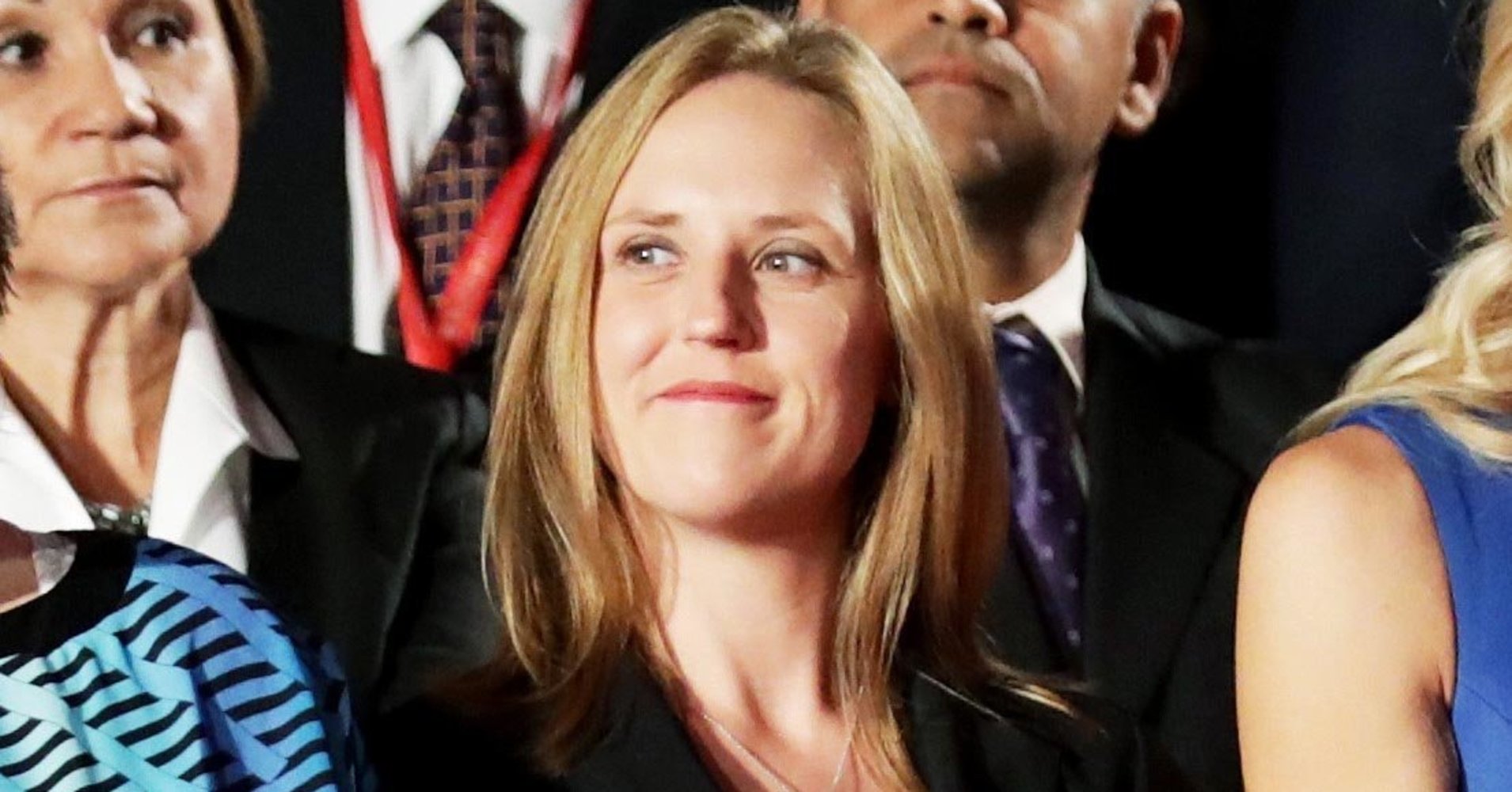[ad_1]

One of the Department of Education’s top civil rights appointees said in a private meeting that it isn’t necessary for the Trump administration to rescind school discipline guidance designed to protect black and brown children.
The appointee, Candice Jackson, also acknowledged that such a move could harm vulnerable kids, according to a document obtained by HuffPost. Still, the guidance remains on the administration’s chopping block.
The Obama-era guidance is supposed to help prevent schools from disproportionately punishing black and brown students. However, in recent months, it has come under fire from the Trump administration and has become a target for rescission.
Jackson, who now serves as second in command at the Department of Education’s Office for Civil Rights, made these comments during a phone conversation in March with representatives from the Southern Poverty Law Center, a civil rights advocacy group. At the time, Jackson was temporarily serving as the highest official in the Office for Civil Rights, an agency that enforces federal civil rights laws in schools.
In the call with the SPLC, Jackson said much of the opposition to the guidance is based on misinformation and misperception, according to a letter the SPLC later sent to Jackson that documented these comments.
The letter, which HuffPost has obtained, was an acknowledgment of the SPLC’s meeting with Jackson, as well as a follow-up to some of the points discussed surrounding the guidance.
On Tuesday, the SPLC sent another letter to Kenneth Marcus, who recently took over for Jackson as head of the Office for Civil Rights. The letter reiterates the comments Jackson made and urges Marcus to take the same position as his predecessor, “that rescinding the DOJ/ED Discipline Guidance is unnecessary and harmful.”
“Assistant Secretary Marcus has an opportunity here to demonstrate a commitment to core American values,” Zoe Savitsky, deputy legal director of SPLC, told HuffPost.
In response to requests for comment about the meeting, Department of Education spokeswoman Elizabeth Hill said the fate of the guidance is still undecided and the administration is continuing to study the issue as part of the Federal Commission on School Safety.
“OCR has met with many advocacy groups with diverse opinions on this important issue. While those meetings continue, absolutely no decisions have been made,” Hill said.
In the past, Jackson has come under fire for her comments that most campus sexual assaults are a result of regrettable drunken hookups.
The Obama-era guidance, released in 2014, clarified how schools should interpret federal civil rights laws to ensure they’re not discriminating against students. The directive asked schools to taper their use of tough disciplinary tactics ― like suspensions and expulsions ― and warned schools that they could violate the law if certain groups of students are consistently receiving harsher punishments than others.
The guidance was issued in reaction to stark statistics showing that students of color are disproportionately subject to harsher discipline than their white peers, even for the same behavior.
The Department of Education continues to receive hundreds of legal complaints regarding discriminatory discipline in schools. In 2017, the department received over 200 complaints, HuffPost previously reported.
However, the guidance has been sitting on the Trump administration’s chopping block for months. As far back as November 2017, Education Secretary Betsy DeVos began meeting with critics of the directive. Then, in March, President Donald Trump asked DeVos to lead a Federal Commission on School Safety after the deadly school shooting in Parkland, Florida.
Part of the school safety commission’s mandate is to recommend policies surrounding the “Repeal of the Obama Administration’s ‘Rethink School Discipline’ policies.” DeVos has held meetings with both critics and advocates of the guidance.
Critics of the Obama directive say it has put pressure on teachers to keep misbehaving students in the classroom to maintain low suspension numbers, making schools less safe. Others say schools were not given the tools to implement alternatives to suspensions and expulsions, creating a more chaotic environment. But civil rights groups like the SPLC see the guidance as a key tool in helping to protect vulnerable students who are already disproportionately pushed out of school.
During the March meeting, Jackson asked for more evidence to support what the SPLC letter calls “the fact that racial disparities in school discipline cannot be explained by differences in behavior by race” and mentioned several districts where she heard the guidance might be negatively affecting students.
Still, with Jackson, the SPLC found a somewhat sympathetic ear. After noting how much misinformation surrounds the guidance, Jackson said the Education Department could “provide a more thorough explanation of the purpose and goals of the guidance.”
It is unclear where Marcus, the new head of the civil rights office, will land on this issue, although civil rights groups have expressed fear that he will promote rescission. They ardently opposed his confirmation to the position.
Tuesday’s SPLC letter calls on him “to protect vulnerable students and ensure that they are not harmed, either by the unnecessary and discriminatory use of exclusionary discipline or by any actions taken by the Department.”
[ad_2]
Source link

